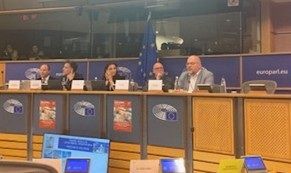


The SIDE-CIC project's "Mapping Report of Social ID Cards in the Construction Sector" and the Executive Summary are available for download via this tab.
This version is subject to change and will be part of the final report, available at the end of the project in Q3 2025
The construction industry in Europe has evolved dramatically over the past few decades, both in terms of technology, but also the sociology of the people working on and running construction sites. The sector can take advantage of the new technologies to improve transparency on construction sites, especially in the context of the growing fragmentation and increasing mobility of workers in the construction industry. This has led to more complexity of subcontracting chains and demands new ways to identify and verify workers and companies present on construction sites.
Across Europe, numerous sectoral social ID card schemes have been developed at national, regional, and local levels, all with various characteristics and functions. The project will identify good practice, the possibility for interconnection and propose input for a possible framework in the area of sectoral social ID cards.
The objective of this project is to guarantee the enforcement of EU rules, create a more transparent environment for workers, employers, and labour authorities and to foster fairer mobility of labour in the construction sector. The approach that the European social partners propose is:
To map the current situation of social identity cards in the EU, particularly as they pertain to the construction sector.
To carry out a feasibility study, focusing on the interconnectivity of the existing national schemes and contribute to defining the needs and possible regulatory gaps in the EU framework. The study should address two main aspects: legal and technical framework.
PROJECT DURATION: 2 years (started in Summer 2023).
